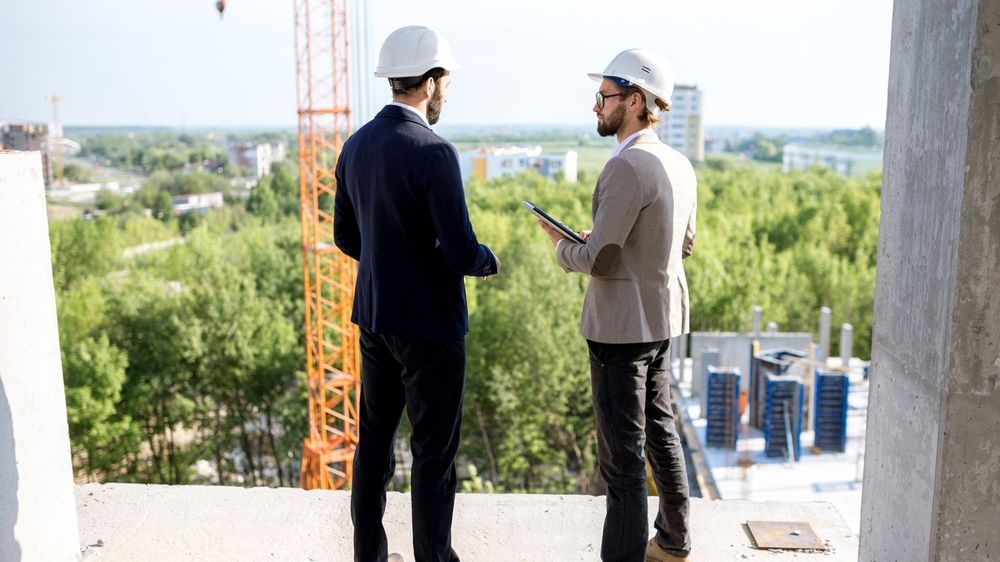Sustainability in the construction industry
According to a UN report, 38% of global carbon emissions stem from the construction and building industry!
Sustainability in buildings and the construction industry
That is a very high share and it means that extraordinary efforts are needed to make the building stock climate-neutral by 2050. The political will to do so is there. In its Green Deal, for example, the European Commission announced a significant increase in investments to improve the energy efficiency of buildings, since currently around 35% of buildings are older than 50 years and 75% are considered to be energy-inefficient. With a renovation initiative, the EU wants to invest an additional EUR 275 billion annually in this area up until 2030. These are enormous sums of money. They also underline the huge investment opportunities in various sectors, because, among others, industrial and IT companies active in fields such as thermal insulation, or electrical and digital building infrastructure will profit from this initiative. Along with reducing carbon emissions, this initiative should also help to create new jobs.
Outside of politics, we have a myriad of players in the construction and building industry, such as clients, architects, property developers, construction companies, scientists, and many other stakeholders. The decisions they make also have and will continue to have a great impact on whether we are able to significantly reduce carbon emissions from the construction sector and the building stock. There’s no need to constantly reinvent the wheel, and bonds issued by construction clients from the past can also support sustainability and a good climate. For instance, the building physics of thick walls in old brick buildings create a good interior climate and the deep window inset provides natural shading. In any case, everyone involved in construction and building needs to be planning and implementing measures that improve sustainability. Read our expert discussion on sustainability in planning and construction.
The financial industry is also part of this great undertaking. It must support the industry in this process of change, promote the circular economy, and temporarily withhold capital from companies that have not yet recognised the need for a new paradigm. It is also vital to maintain and initiate dialogue with companies, working cooperatively together to reduce the industry’s ecological footprint. (See our engagement articles Corporate voices and Companies in the focus of sustainability) Sustainable investment 2.0 means investing responsibly in the future and moving forward together on the path of transforming the built environment.
Dieter Aigner
Managing Director of Raiffeisen KAG, responsible for fund management and sustainability
New horizons in the construction industry: challenges and opportunities
Predicting the future based on past events is something of an Olympic sport among investors, as it can lead to the timely recognition of trends, promising business areas, and the challenges of the future. When it comes to assessing the sustainability of buildings and the construction industry, it is important to analyse all of the opportunities and challenges in this very diverse area.
Raiffeisen KAG's climate strategy
Raiffeisen KAG recognises its responsibility to make an appropriate contribution to combating the climate crisis and, as a financial market participant, to actively support the necessary transformation. The most important goals for this path are formulated in the climate strategy.



Corporate voices on the topic of construction materials
Due to its comparatively high share of global greenhouse gas emissions, the building materials industry is one of the most important sectors with regard to the Paris climate targets. As part of our engagement activities, around 20 companies were asked about their ambitions to make the building materials industry more sustainable.

Property certifications
Sustainability certifications for properties are intended to help real estate companies to develop, maintain, manage, and in some cases reposition their properties in a sustainable manner, by promoting environmentally and socially sustainable practices, ideally over the entire lifecycle of a property.
Invest sustainably
You can achieve more with your investment - namely a contribution to greater sustainability. Find out here about the range of funds with a focus on sustainability.

Issue "New horizons in the counstuction industry"
In this issue, Raiffeisen Capital Management sheds light on the topic of sustainability in the construction industry.
Investment Zukunft
You can also find more detailed information, interesting videos and many videos at investment-zukunft.at.
You can also find more detailed information and many videos at investment-zukunft!